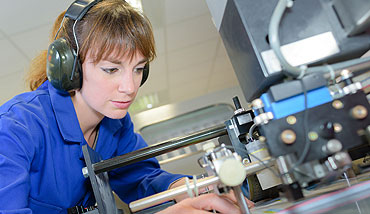Electrical engineering has revolutionized the way we live, work, communicate, and travel in modern times. From powering our homes and industries to enabling advanced technologies and innovations, electrical engineering in UAE plays a crucial role in shaping the world we inhabit today.
Powering infrastructure and industries:
One of the most significant impacts of electrical engineering is evident in the development and maintenance of electrical infrastructure and industries. Electrical engineers design, build, and operate power generation plants, transmission lines, and distribution networks that deliver electricity to homes, businesses, and communities. This reliable and efficient supply of energy powers essential services, such as lighting, heating, transportation, healthcare, and manufacturing, driving economic growth and societal progress.
Advancements in technology and innovation:
Electrical engineering drives technological advancements and innovation across diverse fields, including telecommunications, computing, electronics, and automation. From smartphones and computers to smart homes and wearable devices, electrical engineers develop innovative solutions that enhance connectivity, productivity, and convenience in everyday life. Moreover, breakthroughs in areas such as artificial intelligence, renewable energy, electric vehicles, and Internet of Things (IoT) are reshaping industries and paving the way for a sustainable and interconnected future.
Communication and connectivity:
The proliferation of communication technologies owes much to electrical engineering. Through innovations in telecommunications, satellite systems, wireless networks, and optical fibers, electrical engineers have transformed the way we communicate and share information globally. From voice and data transmission to video conferencing and social media, these advancements have bridged geographical distances, facilitated instant communication, and fostered collaboration on a scale never before imagined.
Transportation and mobility:
Electrical engineering has played a crucial role in revolutionizing transportation and mobility through the development of electric vehicles (EVs), high-speed trains, and intelligent transportation systems. Evs powered by electric motors and batteries offer a cleaner and more sustainable alternative to traditional internal combustion engines, reducing emissions and dependence on fossil fuels. Additionally, advancements in autonomous vehicles, traffic management, and smart infrastructure promise to enhance safety, efficiency, and accessibility in urban mobility.
Renewable Energy and Sustainability:
In response to environmental challenges, electrical engineering is driving the transition towards renewable energy sources such as solar, wind, and hydroelectric power. Through innovations in photovoltaics, wind turbines, energy storage, and grid integration technologies, electrical engineers are making significant strides in harnessing clean and renewable energy to mitigate climate change, reduce carbon emissions, and ensure energy security for future generations.
